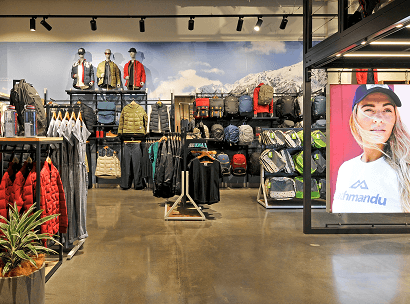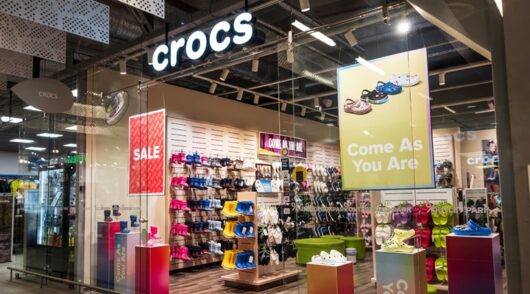
Strong sales growth in Kathmandu’s Australian business and North American wholesale operations drove another year of record profit for the outdoor apparel and equipment retailer.
Just days after announcing it has become the biggest B Corp in ANZ, the retailer on Wednesday reported a 9.7 per cent increase in total sales to NZ$545.6 million ($505 million).
Gross profit was up 5.4 per cent to NZ$332.5 million ($307.8 million), and earnings before interest, tax, depreciation and amortisation increased 10.9 per cent to NZ$99.6 million ($92.2 million). Net profit after tax was up 13.6 per cent to NZ$57.6 million ($53.3 million).
Strong growth in Australia, North America
Excluding Oboz, the North American hiking boot brand that Kathmandu acquired in April 2018, sales were up 2.1 per cent at constant exchange rates in FY19.
In Australia, Kathmandu’s largest market, total sales were up 4.5 per cent year on year and same-store sales were up 2.7 per cent. Total sales fell 3.1 per cent and same-store sales dropped 3.9 per cen in New Zealand, where the brand was founded in 1987.
Oboz saw a 30 per cent sales increase on a pro forma basis to US$44.6 million ($65.1 million), as Kathmandu expanded its wholesale operations in North America. Earnings before interest and tax increased 38.6 per cent of US$7.9 million ($11.5 million) on a pro forma basis.
“We’re really happy with those numbers,” Xavier Simonet, Kathmandu CEO, said on a media call on Wednesday.
Simonet said the retailer had maintained its momentum in the first seven weeks of FY20, with 6.1 per cent growth in same-store sales, though the crucial trading period in the first half is yet to come.
Kathmandu would continue to focus on driving sales and profit growth in its core markets of Australia and New Zealand, Simonet said, and on enhancing the customer experience through digital.
The retailer reported online sales growth of 9.2 per cent at constant exchange rates. E-commerce now accounts for 10.1 per cent of direct-to-consumer sales, up slightly from FY18, when online accounted for 9.4 per cent of sales.
Kathmandu had 2.2 million members in its Summit Club loyalty program as at June 30, 2019, a 12.4 per cent increase on the previous corresponding period. Simonet called the program an “immensely powerful tool”, with members spending 29 per cent more per transaction than non-members.
Millions spent on new stores, paying down debt
Total operating expenses increased 3.7 per cent to NZ$234 million ($216.6 million) in FY19, including an NZ$11.8 million ($10.9 million) incremental increase related to the first full-year inclusion of Oboz and the establishment costs for Oboz North America. As a percentage of sales, however, operating expenses fell 2.5 per cent to 42.9 per cent, reflecting the benefits of diversification into wholesale.
The retailer spent NZ$15.7 million ($14.3 million) on new stores and refurbishments and paid down NZ$14 million ($13 million) of net debt in FY19. Kathmandu had NZ$19.3 million in net debt as at July 31, 2019.
Kathmandu declared a final dividend of NZ$0.12 ($0.11) per share, taking the full-year dividend to a record NZ$0.16 ($0.15) per share.The final dividend will be fully imputed for New Zealand shareholders and fully franked for Australian shareholders.





